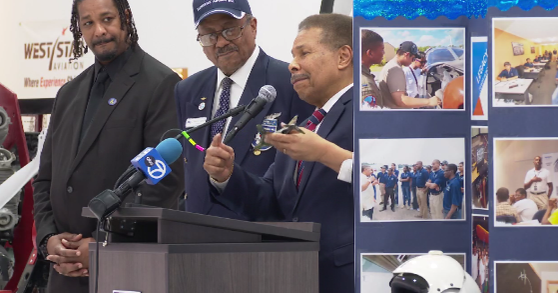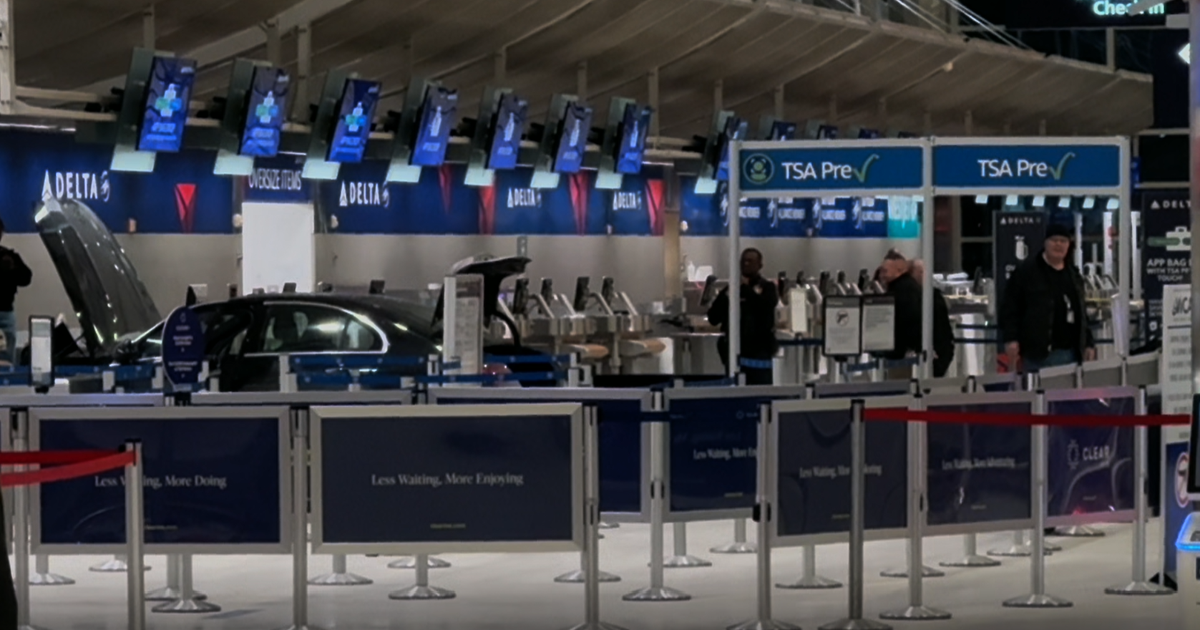Hydrogen-powered flight aims to make flying "greener"
NEW YORK - The future of flight took off with climate change on its radar – no jet fuel needed to take to the skies, just hydrogen.
Lightning McClean soars above earth hoping to save the planet one flight at a time. The plane runs on hydrogen, which emits only water – no carbon dioxide.
The tech to make it possible is the brainchild of Universal Hydrogen. CEO Paul Eremenko says we've entered a new era of aviation with the successful test flight in early March.
"The largest airplane to cruise principally on hydrogen ever in history," Eremenko said.
The idea, though, is not new.
"There have been hydrogen airplanes - the first manned hydrogen in 1950s," Eremenko said.
Hydrogen accessibility remained a barrier to widespread use.
"We don't have a way of getting the hydrogen from where it's made to the airport," Eremenko said.
Universal Hydrogen stepped in to solve that problem.
"Our big idea was instead of trying to build a fuel infrastructure for hydrogen that looks just like the jet fuel infrastructure today, let's turn hydrogen instead into cargo, into freight," Eremenko said.
Hydrogen modules that airports can easily handle using existing tools.
"It's a shortcut, making every airport that can handle cargo hydrogen-ready," Eremenko said.
But the planes need to be hydrogen ready: Enter the conversion kit the company created for existing regional aircraft. Remove the prop engine, insert the hydrogen fuel cell propulsion.
"Truly the cleanest fuel you can imagine," Eremenko said.
Dr. Chris Bataille with Columbia University's Center for Global Energy Policy says air travel accounts for roughly 3.5% of greenhouse gas emissions.
"But its one of the fastest growing sector," Bataille said. "Aviation is just going up, up, up. We have to get in under control."
A perpetual climb, along with global wealth.
Meanwhile, the mid-century deadline to reach net zero emissions fast approaches.
"Don't quit flying. We do have to operate our aircraft more responsibly. We do need to change the fuels," Bataille said.
Bataille says the tech exists – including hydrogen power and electric for short haul flights up to 900 miles. They account for 20% of flights.
"While it's only 20%, it's actually going to be critical for regional travel in North America, Africa, Latin America - places that aren't dense enough like Europe, Japan, China, where they've put in these high-speed electric trains," Bataille said.
For longer flights, companies experiment with synthetic fuels that reduce emissions. But until climate friendly power takes the friendly skies on a large scale, Bataille has a suggestion.
"If you can Zoom, like ware doing right now, do it. Until we can clean up this sector, it does help," Bataille said.
Cleanup might start sooner than you think. Eremenko says Universal Hydrogen expects to be on the mark with a 50-60 passenger regional airplane by 2025.
Universal Hydrogen hopes to make Hydrogen accessible to every mode of transport.








